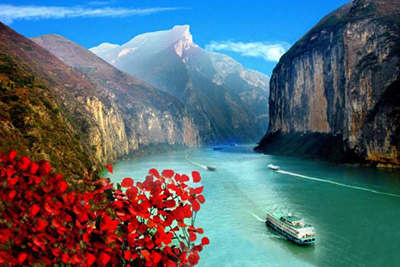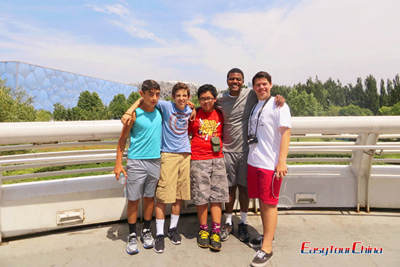The Dragon Boat Festival
The Dragon Boat Festival or Chinese Zongzi Festival (literally Duanwu Festival (端午节) in Chinese) is one of the most important traditional festivals in China and falls on the 5th day of the 5th lunar month in Chinese calendar every year. According the legend, the festival has been celebrated for over 2,000 years.
The Dragon Boat Festival has a wide influence in the world. The festival customs and traditions has spreaded to South Korea, Japan, Singapore, Vietnam, Malaysia, the United States, Germany, Britain and some other countries and places. In September 2009, UNESCO officially approved its inclusion in the representative list of intangible cultural heritage of mankind, so the Dragon Boat Festival became the first Chinese festival to be included in world heritage list.
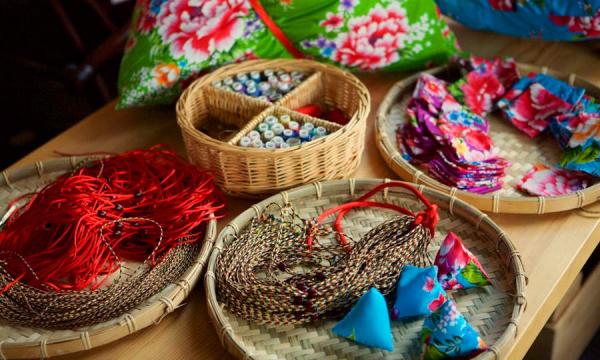
The Dragon Boat Festival Facts
- Chinese: Duanwu Festival, Duānwǔ Jié, 端午节
- Other names: Zongzi Festival (粽子节), Longri Festival (龙日节), Yulan Festival (浴兰节), Calamus Festival (菖蒲节)
- Date: the fifth day of the fifth Chinese lunar month
- Importance: one of the four great traditional festivals in China
- History: 2000+ years
- Why it was invented: to honor Quyuan in the Warring States Period
- Celebrating activities & traditions: dragon boat race, bath in herb water, tie color lies, hanging the Chinese mugwort leaf, etc.
- Festival foods: Zongzi, realgar wine, tea eggs, the “five yellow foods”, etc.
The Date of Dragon Boat Festival 2025
| Year | Date | Day | Holiday |
|---|---|---|---|
| 2025 | May 31th | Saturday | May 31th – June 2nd |
| 2024 | June 10 | Monday | Jun 8th – 10th |
| 2023 | June 22 | Thursday | Jun 22nd – 24th |
| 2022 | June 3 | Friday | Jun 3rd – 5th |
History & Legend – How and When Did the Dragon Boat Festival Start?
There are many stories about the origin of Dragon Boat Festival, but the widely accepted version told a sad story about Quyuan at conflicted Warring States (475 BC - 221 BC). He was a poet and the prime minister of Chu State at that time, highly esteemed by his wisdom and loyalty that brought peace and prosperity to the kingdom.
He knew the dangers that Qin state posed on its country and advised the King. But most officials were jealous of him and dissuaded the king from taking Qu Yuan's advice and exiled him for 20 years. Qu Yuan was desperate and helpless to watch his country into decline, when the capital was stormed by troops from Qin. He wrote "Lisao" or named the Lament, a greatest poem in Chinese literature history.
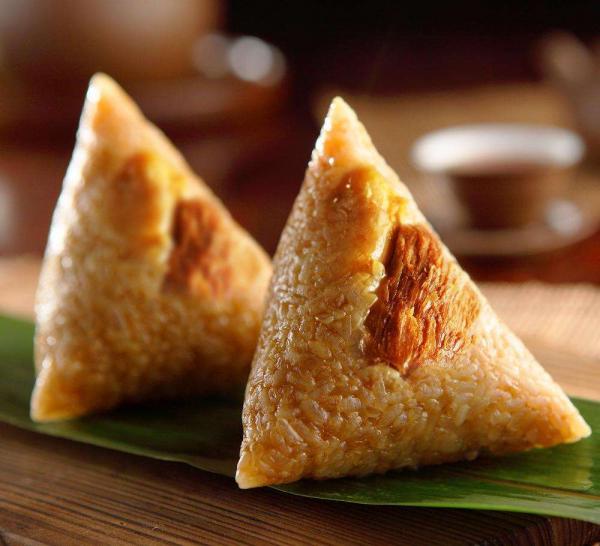
One the fifth day of the fifth lunar month, Quyuan drown himself in the Milo River in great pain, out of the desperation about his motherland's future. Nearby fishermen rushed over and tried to save him, but they were unable even to recover his body. People of Chu grieved and threw rice into the river to feed his hungry ghost. Zongzi was advised by the spirit of Qu Yuan, to wrap the rice in silk and bind it with five different colored threads as his spirit appeared at the mourners' dream and told the reptile in river stole the rice been offered.
And then Zongzi was offered through years while the dragon-boat races represented the attempts to rescue and recover the body of Qu Yuan, who is remembered for his love and loyalty to his country and people.
How People Celebrate Dragon Boat Festival in China
The Duanwu Festival was noted for its two most important activities, racing dragon boats and eating Zongzi. But there are also other traditions and customs to celebrate the Dragon Boat Festival in China.
Race Dragon Boat
Dragon Boat races are the most exciting part of the festival, common at the southern part of China, where has many lakes and rivers. The boat is in shaped of an open - mouth dragon, and brightly painted in red, yellow, white and black. With a length over 40 feet, it can hold dozens of boatmen. During the competition, Boatmen row the boat in cadence with the drumbeats, as the captain standing in the bow of the boat waves a small flag to help coordinate the rowing. The boat racing is very spectacular with drums beating and colorful flags waving, thousands of people cheering for their team to grab the flag at the end of course. This race always takes place in Hong Kong, Guangzhou, and other southern provinces annually.
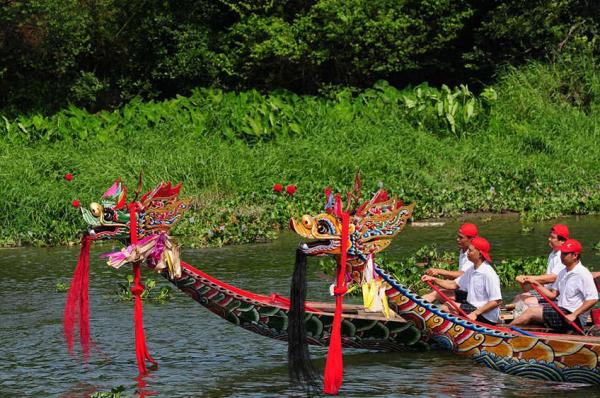
Eating Zongzi
Zongzi is a traditional food on Dragon Boat Day, a pyramid-shaped (sometimes four-sided with pointed, rounded ends) dumpling made of glutinous rice. It is wrapped in bamboo or reed leaves to give it a special flavor and tied together with string, varied greatly across China. Zongzi in Guangdong is made of sweet-tasting, with pork, walnut, bean and other salty fillings; In Sichuan Province, Zongzi is usually served with a sugar dressing. Most Chinese people still maintain the tradition of eating Zongzi on Duanwu Festival but as to its popularity, Zongzi can be found all the year round in China.
Eating the Five Yellow Foods
There is a custom of eating "five yellow foods" during the Dragon Boat Festival in south China. "Five yellow" refers to eel, yellow croaker, cucumber, salted duck egg and realgar wine. It is also said that salted duck eggs can be substituted with soya beans. In the legend of Madam White Snake, lady white drinks realgar wine and shows the true shape of the snake body. So the people think that snake, scorpion, centipede and other poisonous insects can be driven away by realgar wine. Adults would drink some realgar wine on Dragon Boat Festival to exorcise evil detoxification, and keep healthy. According to the Chinese folklore, midday is the best time to eat five yellows so as to ward off poison and evil spirits.
Other Old Practice: Wear Colorful pouches
Ancient Chinese believed that the dragon boat day was unlucky as mid summer at the corner and hot weather then bring various disease, so dispelling disease and driving out evil were the main purpose. Children would wear necklaces or bracelets made of read, yellow threads, and hang and wear colorful pouches containing fragrant herbal medicines. Mother would always have the children bath in the water boiled with herbal medicines, which has been proved good things beneficial to health. But these old custom are not commonly observed and only available at rural areas.

